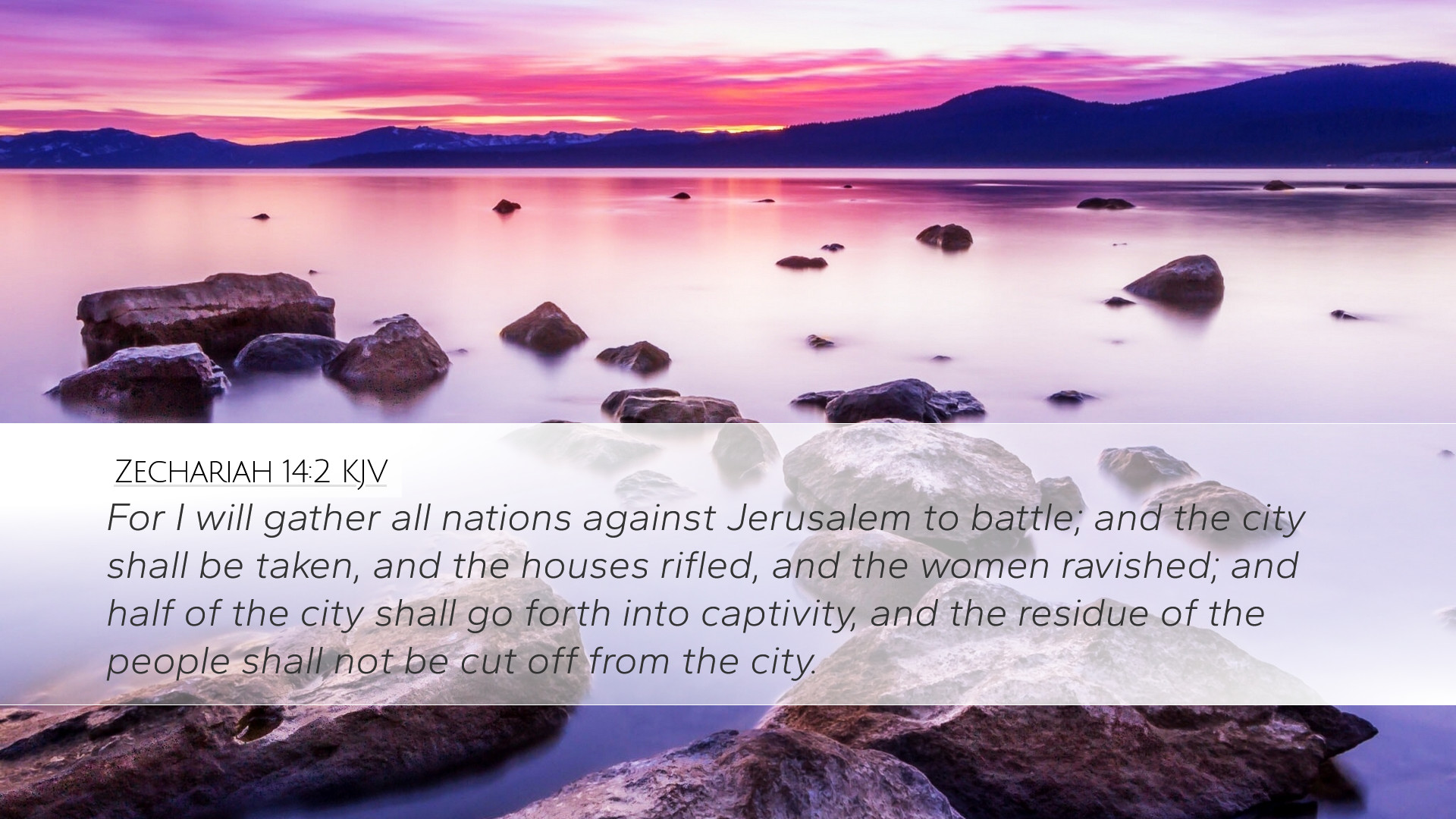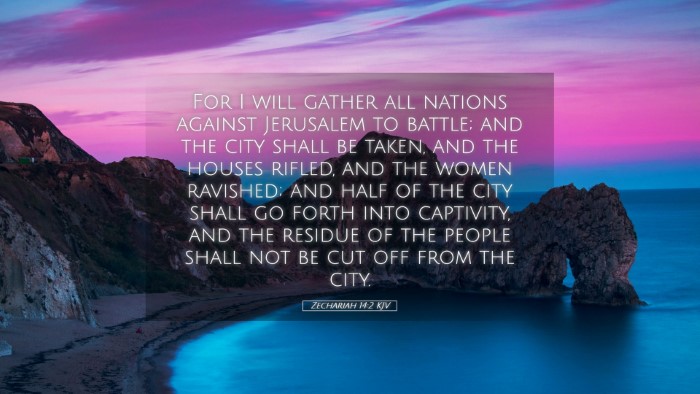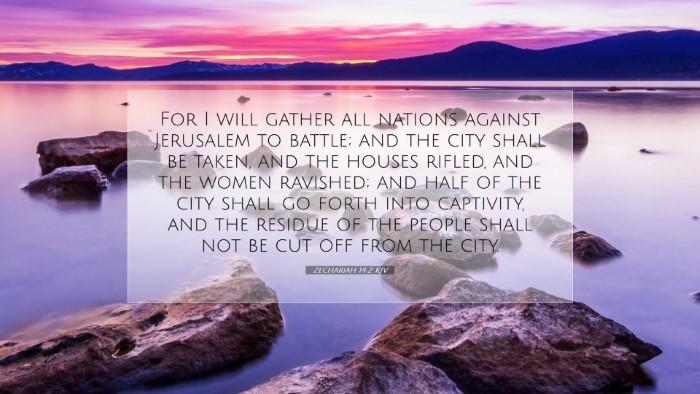Commentary on Zechariah 14:2
Bible Verse: "For I will gather all nations against Jerusalem to battle; and the city shall be taken, and the houses rifled, and the women ravished; and half of the city shall go forth into captivity, and the residue of the people shall not be cut off from the city." (Zechariah 14:2 KJV)
Introduction
The prophetic words of Zechariah paint a vivid picture of impending judgment and ultimate restoration. Specifically, Zechariah 14:2 serves as a stark warning of the tumult that would befall Jerusalem as nations gather against it. In the exploration of this verse, insights from public domain commentaries such as those by Matthew Henry, Albert Barnes, and Adam Clarke will be synthesized to provide a comprehensive understanding.
Contextual Background
Zechariah, a post-exilic prophet, is part of the Minor Prophets in the Old Testament. His prophetic ministry aimed to encourage and guide the returned exiles in rebuilding the temple and restoring their relationship with God. The prophecies often encompass themes of judgment, hope, and the coming Messianic kingdom.
In chapter 14, Zechariah depicts a future day of the Lord, characterized by both devastation and deliverance. The verse in focus underscores the severity of the challenges Israel would face.
Insights from Commentaries
-
Matthew Henry:
Henry comments that the gathering of nations against Jerusalem reflects God’s divine providence, allowing adversities to confront His people as a means to fulfill His righteous purposes. The imagery of "houses rifled" and "women ravished" underscores the brutality of siege warfare, emphasizing that such suffering is not merely incidental but serves as a wake-up call for God’s people to repent and return to Him.
-
Albert Barnes:
Barnes elaborates on the symbolic nature of “all nations” gathering against Jerusalem. This signifies not only a physical assault but a spiritual battle as well. He highlights that while the text describes overwhelming adversity faced by the city, God's assurance of eventual deliverance operates concurrently, framing that all tribulations serve to set the stage for divine restoration. The phrase “half of the city shall go forth into captivity” suggests a division among people, yet leaves hope for remnant survival as a testament to God's faithfulness.
-
Adam Clarke:
Clarke interprets the gathering of nations as a reference to the ultimate confrontation of the ungodly versus the people of God. He suggests that this battle will culminate in a significant spiritual confrontation, echoing themes present in Revelation concerning Armageddon. Furthermore, his emphasis on “the residue of the people” not being cut off hints at the Messianic hope that prevails throughout the tumult, reaffirming that despite temporary trials, God's covenant people will ultimately endure.
Theological Implications
Judgment and Deliverance: The juxtaposition of judgment and the promise of salvation are pivotal themes flowing through this verse. The initial devastation serves as a precursor to the restoration that follows. This serves as a reminder that God often allows trials as a precursor to His sovereign intervention.
Human Suffering: The graphic nature of the events described indicates the depth of suffering during times of upheaval. It encourages the modern reader to consider the real implications of conflict and the suffering experienced by individuals caught in such turmoil.
Hope in Remnant Theology: The notion that “the residue of the people” will remain emphasizes a common biblical motif of a remnant. This gives assurance to believers that God preserves His faithful even amid judgment. The remnant theology is fundamental in understanding God's ongoing covenantal relationship with His people.
Practical Applications
As we reflect on Zechariah 14:2, there are several practical applications for pastoral ministry, theological education, and personal faith journeys:
- Awareness of Spiritual Warfare: This text can serve as a reminder for Christians today to be aware of the spiritual battles that encompass human experience. It challenges believers to look beyond the physical and recognize the spiritual implications of their struggles.
- Encouragement in Trials: The acknowledgment of suffering prepares believers for the history of God's people, assuring them that trials are often part of a divine narrative that leads to redemption.
- Hope for Restoration: Pastors can use this verse to convey messages of hope, reiterating that even in the darkest hours, God’s plan includes restoration for His people. Teaching about the remnant underscores the importance of faithfulness amidst adversity.
Conclusion
Zechariah 14:2 serves as a rich tapestry of warning, judgment, and hope. Through the insights of biblical commentators, we explore profound truths about human suffering, the faithfulness of God, and the victorious hope that culminates in restoration. This text not only challenges the reader to engage with the realities of the past but also to look forward to God's ultimate victory and active involvement in history.


